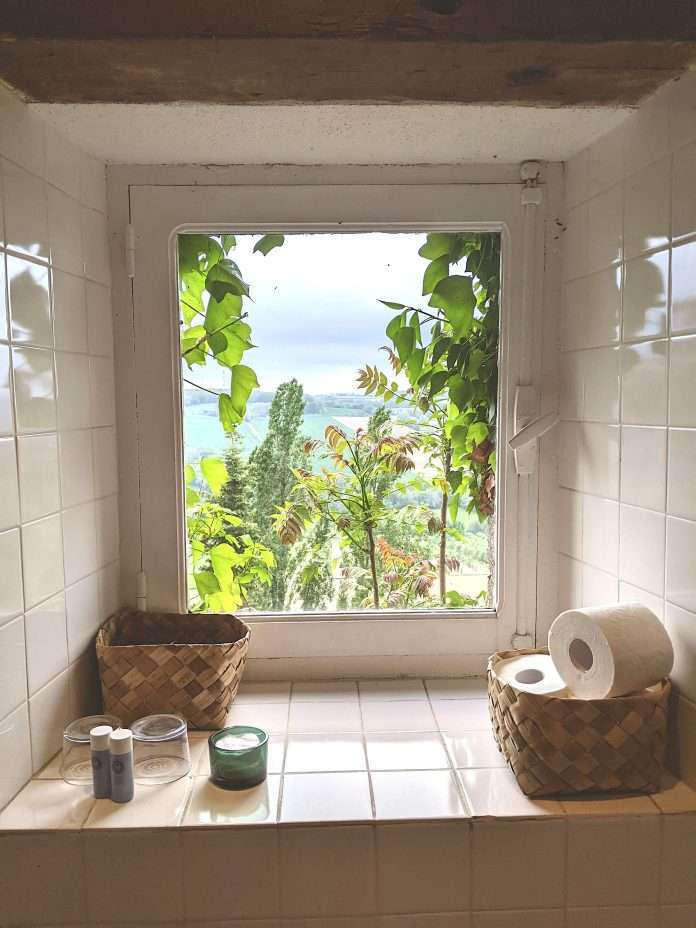The Natural Resources Defense Council has released its latest findings on the environmental impact of toilet paper manufacturing.
In its fifth annual Issue with Tissue report, the Natural Resources Defense Council (NRDC) graded at-home toilet paper brands from “A+” to “F” based on their sustainability practices. The evaluation revealed that despite increased consumer awareness and demand for sustainable products, major American tissue manufacturers like Procter & Gamble, Kimberly-Clark, and Georgia-Pacific continue to lag, receiving “F” grades for their flagship brands such as Charmin, Cottonelle, and Quilted Northern. But the report also found an increasing number of manufacturers receiving higher “A” and “B” grades including Whole Foods Market’s 365 label, Trader Joe’s, and Seventh Generation, among others.
The NRDC’s Issue with Tissue report scored 145 tissue products across toilet paper, paper towels, and facial tissues, with 20 receiving an “A” grade and 15 an “A+.” Products made from post-consumer recycled content received the highest marks for their lower carbon footprint and reduced impact on forests. Among the 63 toilet paper brands evaluated, those made from recycled materials or alternative fibers, such as bamboo, stood out.

“Sustainability is proving to be a disruptive force in the toilet paper and tissue market,” Ashley Jordan, NRDC’s Boreal Corporate Campaign Advocate, said in a statement, emphasizing the transformative power of sustainability in the industry. She noted that half the toilet paper brands that received “A” and “B” grades on the scorecard launched within the past five years. This shift underlines the increasing consumer push for products that do not contribute to deforestation and habitat loss, reflecting a broader trend of environmental responsibility and accountability in consumer goods.
Every year, more than one million acres of Canada’s boreal forest are lost to clear-cutting due in large part to demand for toilet paper, says the NRDC. But toilet tissue made from recycled paper content not only protects the vital forest — but also reduces the carbon footprint of toilet paper by more than 30 percent.
Despite the call for more sustainable practices, leading toilet paper manufacturer Procter & Gamble (P&G) faces scrutiny for its unsustainable sourcing methods. In 2020, a significant two-thirds of P&G’s voting shareholders passed a resolution urging the company to explore ways to eliminate deforestation and forest degradation from its supply chain. However, P&G has remained steadfast in its operations, prompting concerns and a formal complaint by the NRDC, which may lead to inquiries by the Securities and Exchange Commission for what NRDC says is misleading shareholders about its wood pulp sourcing practices.

Shelley Vinyard, NRDC’s Boreal Corporate Campaign Director, pointed out the disconnect between P&G’s practices and the evolving market demands and regulatory environment, stating, “Procter & Gamble tissue and toilet paper products are falling far behind consumer demand, investor expectations, and the regulatory environment. If brands like Charmin want to keep up with the times, they need to opt into a much more sustainable future that doesn’t rely on climate-critical forests.”
The concern over P&G’s environmental impact is shared by descendants of the company’s founders, William Procter and James Gamble. Leveraging their unique position and influence as shareholders, they have urged the company to adopt a more proactive role in addressing climate change. Highlighting the irony in P&G’s practices, they wrote, “The increasing severity of extreme weather events, including the record-setting wildfires in Canada threaten global supply chains, and as a result, P&G’s bottom line. Ironically, P&G’s own unsustainable sourcing of pulp from the boreal forest in Canada both contributes to the climate crisis and weakens forest resilience, both of which are widely agreed to be key drivers of the wildfires that will likely impact the company’s pulp supply chain moving forward.”
The NRDC’s ongoing efforts to rate and publicize the sustainability of tissue products aim to encourage the industry to adopt more responsible sourcing and manufacturing practices. With consumer awareness and demand for sustainable products on the rise, companies face increasing pressure to align their operations with environmental conservation efforts.
Related on Ethos:


